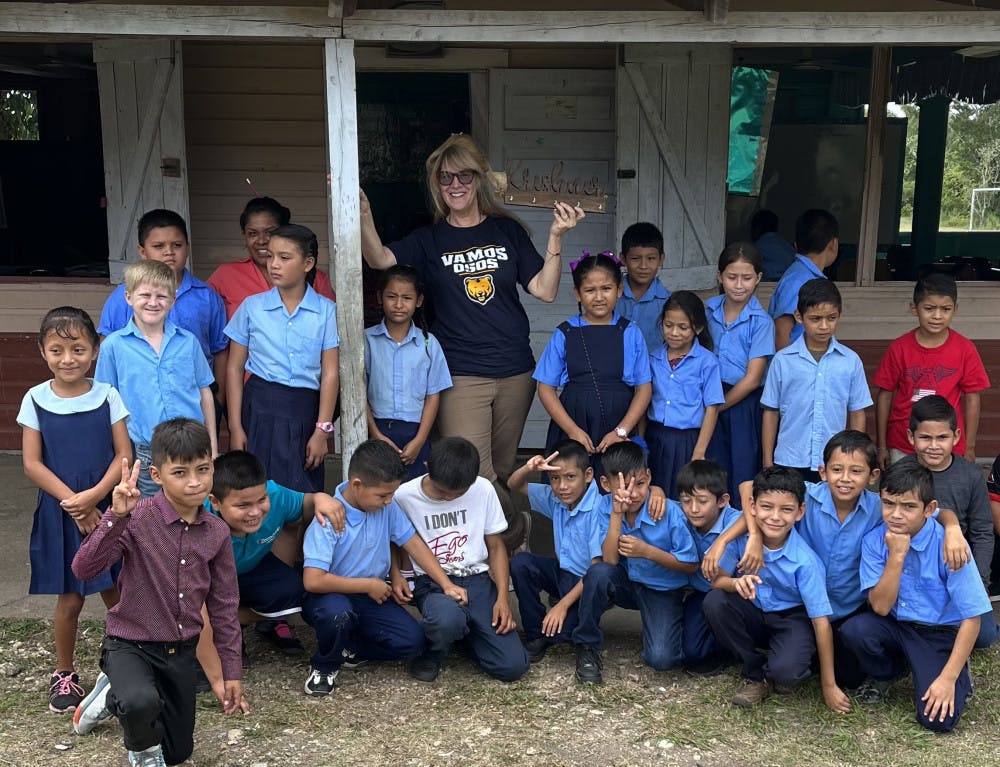In 2007, University of Northern Colorado Education Professor Dr. Jean Kirshner travelled nearly 2,500 miles to the Cayo District in Belize. She went alongside a surgeon to give her time and volunteer at a local hospital. This trip became much more than volunteering at a hospital though, as Kirshner discovered how valuable her knowledge and experience as an elementary educator could be to communities of the Cayo District.
After connecting with a school recommended by the hospital she was volunteering at, Kirshner unknowing created a lifelong connection between Belizean and UNC educators. This initial visit also sparked Kirshner to create a nonprofit organization, The Belize Education Project, dedicated to literacy, school supplies and scholarships for Belizean children.

Kirshner’s passion for improving literacy in Belize has only grown since; even spreading to other educators.
“I jumped at the opportunity to go [to Belize]," said Dr. Christine Kyser, a UNC education professor. "Hearing her talk about it and her passion over the years made me really excited."
Kyser was invited to join Kirshner and 12 other educators on this year’s trip to Belize.
While the goal for Kirshner’s nonprofit is to better educate Belizean students, this year’s trip focused much on the exchange of ideas and information between American and Belizean educators and students.
Despite being thousands of miles away, Kirshner and Kyser along with the other educators have discovered that Belizean educators and students go through the same struggles that those in America do. The sharing of ideas, information and struggles have created relationships that have continued to strengthen over the years.
While helping provide education and supplies to Belizean children and teachers, Kirshner and Kyser also used the opportunity to educate and inform their students here at UNC. They took time to video chat with their students from Belizean classrooms.

“They were surprised to see that things were similar, but also you could have a classroom with so few bells and whistles. No carpet on the floor, glass on the windows, lights,” Kirshner said.
For Kyser, debriefing with her UNC students after the trip was the most powerful part. During her debrief, she shared photographs and explained how school in Belize is seen aa a privilege rather than being mandatory.
“You see the sacrifices families make to send their children to school and that’s something we take for granted sometimes," Kyser said. "The opportunity of potential income is very limited there."
Kirshner and her students also discussed the ease of access to secondary education in the United States compared to the difficulties that Belizean families and children go through,. It is a struggle to get education post primary school. Despite these differences though, UNC and Belizean students were able to connect and find shared interests.
“The students were so enthusiastic to share with the UNC students Belizean animals," Kirshner said. "They wanted to tell my students about tapirs, scarlet macaws and blue morpho butterflies."
The idea that UNC and Belizean students have equally valuable knowledge to share amongst each other was the biggest take away most from this year’s trip by the educators. This upcoming April, Belizean educators will be traveling to Greeley to continue to share knowledge and experiences.
If you would like to support the Belize Education Project or are an educator interested in going on a future trip, there are ways to donate and contact the organization through its website.
“Ultimately, you’re the one who grows the most at of the experience,” Kyser said.







